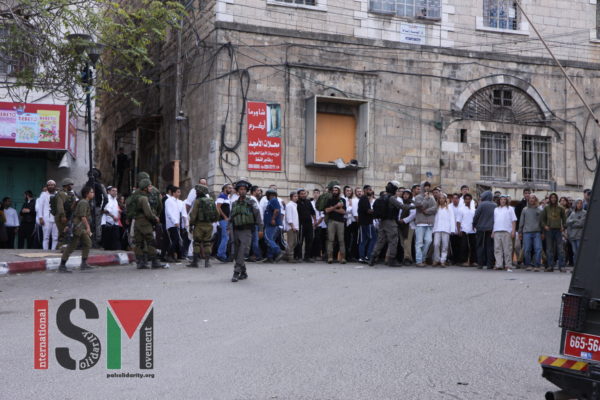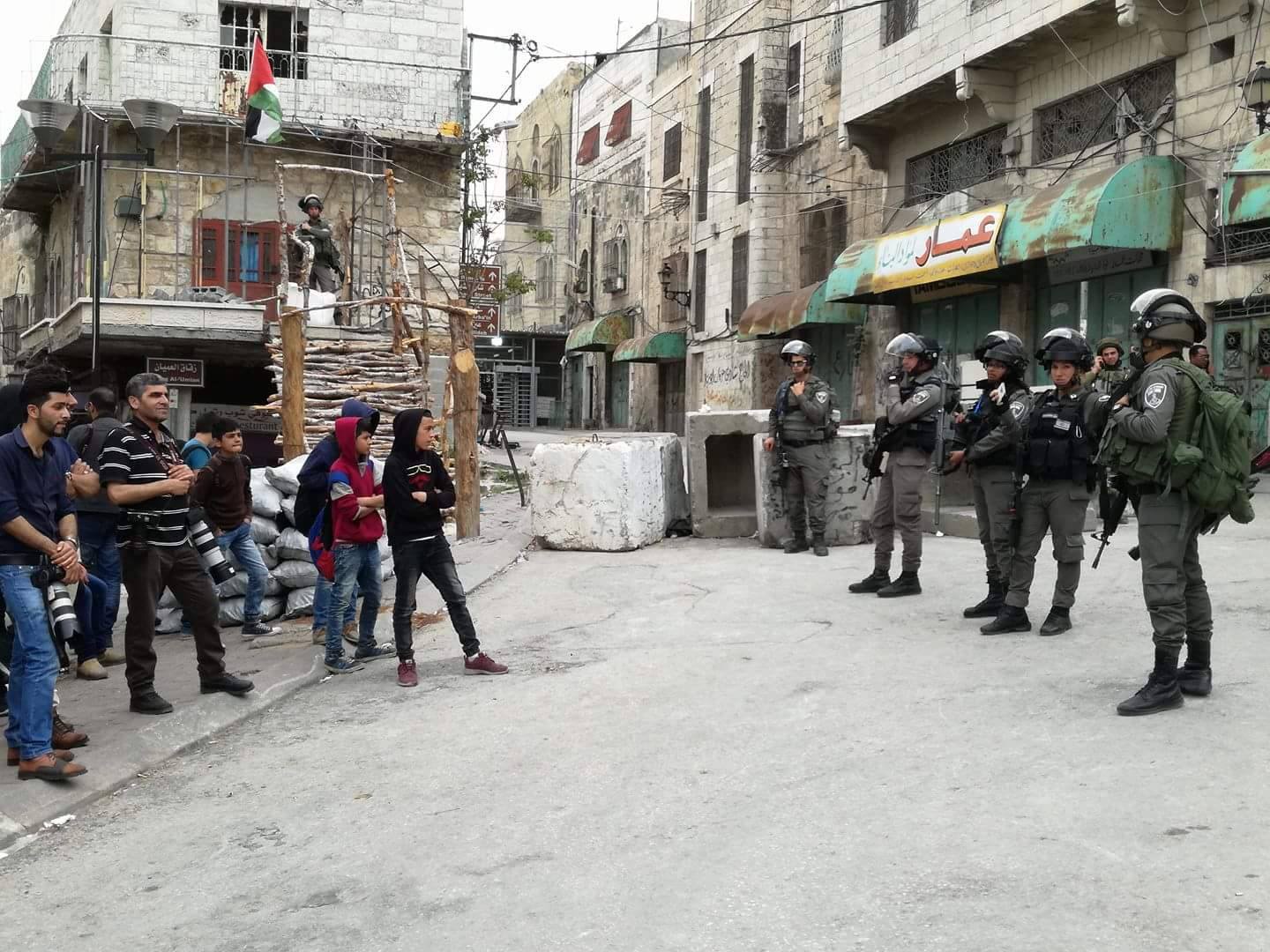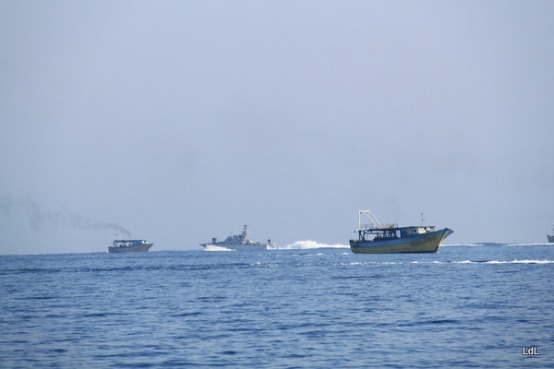Tag: Closure
-
Severe restrictions for Palestinians, freedom of movement for settlers.
02/04/2018, International Solidarity Movement, Al Khalil/Hebron Today Israeli forces sealed off parts of three streets in Palestinian controlled H1 near Bab Azawiyeh ordering more than fifty Palestinian shops to close for ‘security reasons’. Israeli forces also closed the Al Ibrahimi Mosque and the checkpoint adjacent to it for two whole days. Pictured: Israeli forces seal…
-
In Pictures: al-Khalil on lockdown as Israeli settlers and tourists celebrate Pesach
14th April 2017 | International Solidarity Movement, al-Khalil team | al-Khalil (Hebron), occupied Palestine Since the evening of April 10th, 2017, Israeli forces have imposed increased restrictions on the Palestinians of al-Khalil as colonial settlers and Israeli tourists celebrate Pesach – or Passover – across the city. So far, homes have been occupied, checkpoints closed,…
-
A day at sea with Gaza’s fishermen
by Lydia de Leeuw 26 November 2011 | A Second Glance



